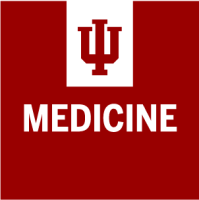Genetic disease is estimated to impact 1% of all newborns and babies that require care in the NICU experience at least a 10-fold increased risk for a genetic cause of their symptoms. The Division of Neonatal-Perinatal Medicine’s dedicated perinatal genomics program serves the unique needs of these babies and their families by education and clinical work.
The perinatal genomics program helps clinicians, providers and families determine if there is a genetic cause for why a baby needs NICU care. The division offers cutting edge diagnostic evaluations and genetic testing, access to specialists trained in caring for babies impacted by a genetic diagnosis, and novel therapies for many rare diseases. Faculty also lead a variety of research and education to better understand how to diagnosis and care for babies with a confirmed or suspected genetic diagnosis when current medical knowledge gaps are identified.
Education
The Perinatal Genomics team is involved in perinatal genomic care education around the state including producing and performing three webinars and speaking and presenting at conferences and universities nationwide.
Our genetic webinars focus on standardizing genomic care and the use of rapid genome sequencing in the NICU and how local Indiana community hospitals can implement rapid genome sequencing into their NICUs for their own patients. Watch webinars.
Publications
The Perinatal Genomics team has a variety of publications in journals like the Journal of the American Medical Association, Pediatrics and the American Journal of Medical Genetics. They recently had a publication in Pediatrics titled “Standardized Criteria for Genomic Testing in the NICU.”
Services
- Expert genetic evaluations and comprehensive genetic counseling
- Rapid, comprehensive genetic testing with results available in less than a week
- Family focused care with integrated support from parents who have previously experienced a NICU journey with their own children
- Precision therapeutic care based on the patient’s genetic diagnosis
- Access to the Undiagnosed Rare Disease Clinic to help achieve a genetic answer when clinical testing has been unable to provide a diagnosis


